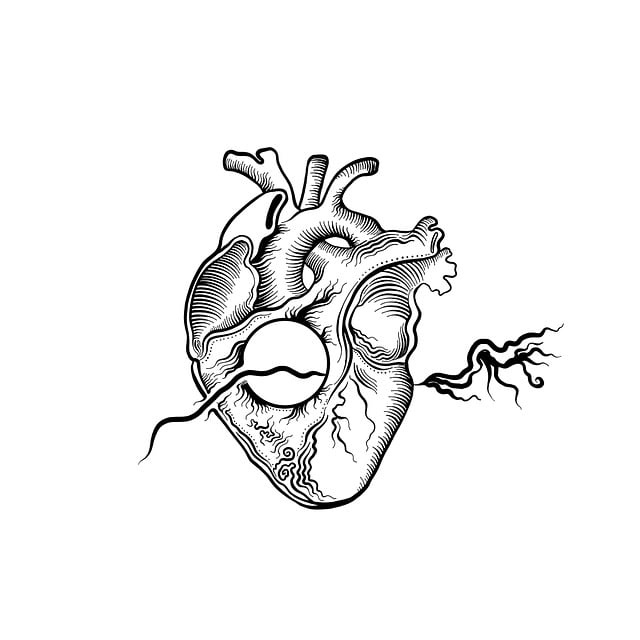World Heart Day is an annual event observed on September 29th to raise awareness about heart disease and promote preventive measures for cardiovascular health. This global initiative, led by the World Heart Federation in collaboration with the World Health Organization, aims to educate individuals about the risks of cardiovascular disease (CVD) and empower them to take control of their heart health. In this article, we will delve into the significance of World Heart Day 2023, explore its history, discuss the importance of maintaining a healthy heart, and provide practical tips for prevention.
1. Understanding Cardiovascular Disease
Cardiovascular disease encompasses various conditions that affect the heart and blood vessels, including heart attacks, strokes, heart failure, and other related illnesses. It is the leading cause of death globally, responsible for more than 17 million deaths each year. Understanding the impact and different types of cardiovascular disease is crucial for promoting heart health.
The Global Impact of Cardiovascular Disease
Cardiovascular disease poses a significant health burden worldwide, affecting individuals of all ages and backgrounds. According to the World Heart Federation, more than 20.5 million people die annually from heart-related conditions. This number surpasses the combined deaths caused by HIV, malaria, and cancer. It is important to recognize that cardiovascular disease is not exclusive to developed countries but also affects middle-income and low-income nations.
Types of Cardiovascular Disease
Cardiovascular disease encompasses a range of conditions that affect the heart and blood vessels. Some of the most common types include:
- Coronary artery disease: This occurs when the arteries that supply blood to the heart become narrowed or blocked, leading to chest pain, heart attacks, or other complications.
- Stroke: A stroke occurs when blood flow to the brain is interrupted, resulting in brain damage and potential long-term disability.
- Heart failure: Heart failure occurs when the heart is unable to pump enough blood to meet the body’s needs, leading to symptoms such as fatigue, shortness of breath, and fluid retention.
- Arrhythmias: These are abnormal heart rhythms that can cause the heart to beat too fast, too slow, or irregularly.
- Congenital heart defects: These are structural abnormalities of the heart that are present from birth and can affect the heart’s function.
- Valvular heart disease: This refers to conditions that affect the heart valves, impairing their ability to regulate blood flow properly.
2. The History of World Heart Day
World Heart Day has a rich history that highlights the global commitment to raising awareness about cardiovascular health. Understanding the origins and evolution of this annual event helps us appreciate its significance in combating heart disease.
Inception and Evolution of World Heart Day
World Heart Day was launched in the year 2000 by the World Heart Federation, a global organization dedicated to preventing and controlling cardiovascular disease. Initially scheduled to be observed on the last Sunday of September, it was later fixed on September 29th. This annual event aims to unite individuals, organizations, and governments in the fight against heart disease and promote heart-healthy lifestyles worldwide.
The Significance of World Heart Day
World Heart Day serves as a reminder of the importance of cardiovascular health and the need for prevention and early detection of heart disease. It provides a platform to educate communities about the risks associated with cardiovascular disease and encourages individuals to take proactive steps to maintain a healthy heart. By raising awareness and fostering collaboration, World Heart Day plays a crucial role in reducing the global burden of heart-related illnesses.
3. Know Your Heart: The Key to Prevention
To effectively prevent cardiovascular disease, it is essential to have a comprehensive understanding of heart health. By recognizing the signs of a healthy heart and identifying common risk factors, individuals can take proactive measures to protect their cardiovascular well-being.
Understanding Heart Health
Heart health refers to the overall well-being of the heart and its ability to function optimally. A healthy heart efficiently pumps blood throughout the body, supplying oxygen and nutrients to vital organs and tissues. It is important to maintain a healthy heart to reduce the risk of developing cardiovascular disease.
Signs of a Healthy Heart
A healthy heart exhibits several characteristics that indicate overall cardiovascular well-being. These signs include:
- Normal blood pressure: A healthy heart maintains a blood pressure within the normal range, typically around 120/80 mmHg.
- Regular heart rhythm: The heart beats in a steady and regular rhythm, without any irregularities or palpitations.
- Adequate exercise tolerance: A healthy heart can handle physical exertion without experiencing excessive fatigue or shortness of breath.
- Good cholesterol levels: Healthy levels of HDL (“good”) cholesterol and low levels of LDL (“bad”) cholesterol contribute to heart health.
- Normal body weight: Maintaining a healthy weight reduces the strain on the heart and lowers the risk of heart disease.
- Absence of chest pain: A healthy heart does not experience persistent or recurring chest pain, which can be a sign of underlying heart problems.
Risk Factors for Cardiovascular Disease
Several factors increase the risk of developing cardiovascular disease. By identifying and addressing these risk factors, individuals can make informed lifestyle choices to protect their heart health. Common risk factors include:
- Unhealthy diet: Consuming a diet high in saturated fats, trans fats, sodium, and processed foods increases the risk of heart disease.
- Lack of physical activity: Leading a sedentary lifestyle without regular exercise contributes to weight gain, high blood pressure, and other risk factors.
- Tobacco use: Smoking and exposure to secondhand smoke damage blood vessels and increase the risk of heart disease.
- High blood pressure: Hypertension puts added strain on the heart and blood vessels, increasing the likelihood of cardiovascular problems.
- Diabetes: Individuals with diabetes are at a higher risk of developing heart disease due to elevated blood sugar levels.
- Obesity: Excess body weight places additional stress on the heart and increases the likelihood of developing cardiovascular disease.
- Family history: A history of heart disease in close relatives, such as parents or siblings, can indicate a higher genetic predisposition to heart problems.
- Age and gender: Advancing age and being male are additional risk factors for cardiovascular disease, although it can affect individuals of all ages and genders.
4. Promoting Heart Health and Awareness
World Heart Day plays a crucial role in promoting heart health and raising awareness about the impact of cardiovascular disease on individuals and communities. By highlighting the importance of prevention and early detection, this global initiative encourages individuals to take proactive measures to protect their cardiovascular well-being.
The Role of World Heart Day
World Heart Day serves as a platform to inspire individuals, communities, and organizations to prioritize heart health and take action against cardiovascular disease. It aims to create a global movement that fosters awareness, education, and collaboration in combating the risk factors associated with heart disease.
Global Initiatives and Campaigns
World Heart Day is marked by various initiatives and campaigns that aim to raise awareness about cardiovascular health and prevention. These initiatives include:
- Awareness campaigns: Organizations, healthcare providers, and individuals organize awareness campaigns to educate communities about heart disease risk factors, prevention strategies, and the importance of early detection.
- Health screenings: Free or low-cost health screenings are conducted in many countries to measure blood pressure, cholesterol levels, and other vital markers of heart health.
- Public events and activities: Walkathons, marathons, fitness sessions, and other public events are organized to encourage physical activity and promote heart-healthy lifestyles.
- Educational programs: Schools, universities, and community centers host educational programs that focus on heart health, providing information on nutrition, exercise, and risk factors for cardiovascular disease.
- Collaboration with healthcare professionals: World Heart Day encourages collaboration between individuals and healthcare professionals to promote preventive measures, regular check-ups, and early intervention.
5. Preventive Measures for Cardiovascular Health
Prevention is a key aspect of maintaining heart health and reducing the risk of cardiovascular disease. By adopting a healthy lifestyle and making informed choices, individuals can significantly decrease their chances of developing heart-related illnesses.
Healthy Lifestyle Choices
Making healthy lifestyle choices is paramount to maintaining a healthy heart. Here are some key elements of a heart-healthy lifestyle:
- Balanced diet: Consuming a diet rich in fruits, vegetables, whole grains, lean proteins, and healthy fats promotes heart health. Limiting the intake of processed foods, sugary beverages, and saturated and trans fats helps prevent heart disease.
- Regular exercise: Engaging in moderate-intensity aerobic exercises, such as brisk walking, swimming, or cycling, for at least 150 minutes per week promotes cardiovascular fitness and reduces the risk of heart disease.
- Weight management: Maintaining a healthy weight through a combination of regular physical activity and a balanced diet reduces the strain on the heart and lowers the risk of developing cardiovascular disease.
- Smoking cessation: Quitting smoking and avoiding exposure to secondhand smoke significantly reduces the risk of heart disease and other health complications.
- Stress management: Adopting stress-reducing techniques such as meditation, deep breathing exercises, or engaging in hobbies can help lower blood pressure and improve overall heart health.
- Limiting alcohol consumption: Excessive alcohol consumption can lead to high blood pressure, heart failure, and other cardiovascular problems. It is advisable to limit alcohol intake to moderate levels or follow recommended guidelines.
Physical Activity and Exercise
Regular physical activity is crucial for maintaining cardiovascular health. Engaging in regular exercise offers numerous benefits, including:
- Strengthening the heart muscle and improving its efficiency
- Lowering blood pressure and reducing the risk of hypertension
- Increasing levels of HDL (“good”) cholesterol and lowering levels of LDL (“bad”) cholesterol
- Enhancing circulation and improving blood flow to vital organs
- Promoting weight management and reducing the risk of obesity-related heart problems
- Boosting overall mood and mental well-being
Individuals should aim for at least 150 minutes of moderate-intensity aerobic exercise or 75 minutes of vigorous-intensity exercise per week. Additionally, incorporating strength training exercises at least twice a week helps build muscle mass and improves overall cardiovascular fitness.
A Balanced and Nutritious Diet
A balanced and nutritious diet is essential for maintaining heart health and reducing the risk of cardiovascular disease. Key dietary recommendations for a healthy heart include:
- Consuming a variety of fruits and vegetables, aiming for at least five servings per day. These are rich in vitamins, minerals, and antioxidants that promote heart health.
- Choosing whole grains over refined grains, as they contain more fiber and nutrients. Whole grains include whole wheat, brown rice, quinoa, oats, and barley.
- Opting for lean sources of protein, such as fish, poultry, legumes, and nuts. These are lower in saturated fats, which can contribute to heart disease.
- Limiting the intake of saturated and trans fats found in fatty meats, full-fat dairy products, fried foods, and commercially baked goods. These fats can raise cholesterol levels and increase the risk of heart disease.
- Incorporating healthy fats, such as those found in olive oil, avocados, nuts, and seeds. These fats have been shown to have a positive impact on heart health.
- Reducing sodium intake by avoiding processed foods, canned soups, and salty snacks. High sodium intake can lead to high blood pressure and increase the risk of heart disease.
Smoking Cessation
Smoking is a major risk factor for cardiovascular disease. It damages blood vessels, increases the risk of blood clots, raises blood pressure, and reduces the amount of oxygen in the blood. Quitting smoking is one of the most significant steps individuals can take to improve their heart health. Various resources, including counseling, support groups, and nicotine replacement therapies, are available to assist individuals in their journey towards smoking cessation.
Managing Stress
Chronic stress can have detrimental effects on heart health. It can lead to increased blood pressure, inflammation, and the release of stress hormones that negatively impact the cardiovascular system. Employing stress management techniques, such as regular exercise, deep breathing exercises, mindfulness meditation, and engaging in hobbies, can help reduce stress levels and improve overall heart health.
6. Regular Check-ups and Screenings
Regular check-ups and screenings play a crucial role in the early detection and prevention of cardiovascular disease. By monitoring key indicators of heart health and identifying potential risk factors, individuals can take appropriate measures to protect their heart health.
Importance of Regular Heart Check-ups
Regular heart check-ups provide an opportunity for healthcare professionals to assess an individual’s cardiovascular health, detect early signs of heart disease, and recommend appropriate interventions. During a heart check-up, healthcare providers may:
- Measure blood pressure: High blood pressure is a significant risk factor for heart disease. Regular monitoring allows for timely intervention and management.
- Assess cholesterol levels: Elevated levels of LDL cholesterol (“bad” cholesterol) and low levels of HDL cholesterol (“good” cholesterol) can increase the risk of heart disease. Screening helps identify individuals who may require lifestyle modifications or medication.
- Check blood sugar levels: Diabetes is a risk factor for heart disease. Regular blood sugar screenings help identify individuals at risk and allow for early intervention.
- Evaluate weight and body mass index (BMI): Excessive weight or obesity is associated with an increased risk of heart disease. Monitoring weight and BMI helps individuals take appropriate steps towards weight management.
- Conduct electrocardiograms (ECGs) and stress tests: These tests evaluate the heart’s electrical activity and its response to physical exertion and can help detect underlying heart conditions.
- Assess family history and risk factors: Understanding an individual’s family history and personal risk factors helps healthcare providers tailor preventive strategies and interventions.
Screening Tests for Cardiovascular Health
In addition to regular heart check-ups, various screening tests can provide valuable insights into an individual’s cardiovascular health and risk factors. Common screening tests include:
- Lipid profile: This blood test measures cholesterol and triglyceride levels, helping assess an individual’s risk of developing heart disease.
- Blood pressure measurement: Regular blood pressure readings help identify individuals with hypertension and guide appropriate management strategies.
- Blood glucose test: This test measures blood sugar levels and helps assess an individual’s risk of developing diabetes, a significant risk factor for heart disease.
- Body mass index (BMI) calculation: BMI is a measure of body fat based on height and weight. It helps identify individuals who may be overweight or obese, both of which increase the risk of heart disease.
- Cardiac imaging tests: These tests, such as echocardiograms or stress tests, provide detailed images of the heart’s structure and function, helping detect abnormalities or underlying heart conditions.
It is important to consult with a healthcare professional to determine the most appropriate screening tests based on individual risk factors, age, and medical history.
7. Raising Awareness: World Heart Day Events
World Heart Day is marked by various events and activities that aim to raise awareness about cardiovascular health and prevention strategies. These events provide an opportunity for individuals, communities, and organizations to come together and actively participate in promoting heart health.
Global Events and Activities
World Heart Day is celebrated globally through a range of events and activities. These may include:
- Walkathons and marathons: Walking or running events are organized to encourage physical activity and engage individuals of all ages in promoting heart health.
- Health fairs and screenings: Community health fairs offer opportunities for free or low-cost health screenings, educational sessions, and access to healthcare professionals.
- Educational seminars and workshops: Organizations host seminars and workshops to educate the public about heart disease prevention, risk factors, and healthy lifestyle choices.
- Public lectures and talks: Renowned experts in the field of cardiology and heart health deliver lectures and talks to raise awareness and provide valuable insights into cardiovascular disease prevention and management.
- Social media campaigns: Social media platforms are utilized to amplify the reach of World Heart Day messages, encouraging individuals to share information, personal stories, and tips for maintaining a healthy heart.
- Lighting landmarks and buildings: Landmarks, buildings, and public spaces are illuminated in red, the color associated with heart health, to symbolize solidarity and raise awareness about cardiovascular disease.
Engaging Communities and Organizations
Communities and organizations play a vital role in promoting heart health and organizing World Heart Day events. They can:
- Collaborate with local healthcare providers: Partnering with healthcare professionals and clinics can provide access to health screenings, educational materials, and expert resources.
- Organize awareness campaigns: Communities can initiate awareness campaigns through local media outlets, community centers, and educational institutions to spread information about heart health and prevention.
- Encourage workplace wellness programs: Employers can promote heart health by implementing workplace wellness programs that include physical activity initiatives, healthy eating options, and stress management resources.
- Engage schools and universities: Educational institutions can incorporate heart health into their curriculum, organize awareness events, and encourage students to take part in activities promoting heart-healthy habits.
- Establish partnerships with local businesses and organizations: Collaborating with local businesses, nonprofits, and community organizations can help expand the reach of World Heart Day initiatives and create a collective impact.
8. Making a Difference: How You Can Contribute
Individuals can make a difference in promoting heart health and raising awareness about cardiovascular disease. By actively participating in World Heart Day and taking proactive steps to protect their heart health, individuals can inspire others to do the same.
Spreading Awareness on Social Media
Social media platforms provide a powerful tool for raising awareness about heart health and World Heart Day. Individuals can:
- Share heart health tips and prevention strategies on their social media accounts.
- Use relevant hashtags, such as #WorldHeartDay and #HeartHealth, to join the global conversation.
- Share personal stories and experiences related to heart health to inspire others.
- Engage with heart health organizations and influencers to amplify the reach of heart health messages.
- Encourage friends, family, and followers to prioritize heart health and participate in World Heart Day events.
Supporting Heart-Related Charities and Organizations
Contributing to heart-related charities and organizations is another impactful way to make a difference. Individuals can:
- Donate to organizations dedicated to cardiovascular research, prevention, and treatment.
- Volunteer their time and skills to support local initiatives and events.
- Participate in fundraising activities, such as charity walks or runs, to raise funds for heart health causes.
- Advocate for heart health policies and initiatives at the local, national, and international levels.
Educating Family and Friends
Raising awareness starts at home. Individuals can create a positive impact by educating their family and friends about heart health and fostering healthy habits. This can include:
- Sharing information on heart-healthy diets, exercise routines, and stress management techniques.
- Encouraging loved ones to prioritize regular check-ups and screenings.
- Organizing family activities that promote physical activity and healthy eating.
- Providing emotional support and encouragement for lifestyle changes.
9. The Future of Heart Health
Advancements in medical research and technology hold promise for the future of heart health. Ongoing efforts are focused on improving prevention strategies, treatment options, and the overall understanding of cardiovascular disease.
Advancements in Cardiovascular Research
Researchers are continuously working to deepen our understanding of cardiovascular disease and develop innovative approaches to prevention and treatment. Areas of advancement include:
- Genetic research: Understanding the genetic factors that contribute to heart disease can help identify individuals at higher risk and personalize prevention strategies.
- Precision medicine: Tailoring treatments and prevention strategies based on an individual’s unique characteristics can enhance outcomes and reduce the burden of heart disease.
- Stem cell therapy: Regenerative medicine approaches, such as using stem cells to repair damaged heart tissue, hold promise for future treatment options.
- Novel drug therapies: Ongoing research into new drug therapies aims to improve the management of heart disease and reduce associated risks.
Technological Innovations for Heart Monitoring
Advancements in technology play a crucial role in improving heart monitoring and early detection of cardiovascular disease. Some notable innovations include:
- Wearable devices: Smartwatches, fitness trackers, and other wearable devices offer continuous heart rate monitoring and provide valuable insights into heart health.
- Remote patient monitoring: Telehealth and remote monitoring technologies allow healthcare providers to monitor patients’ heart health remotely and intervene if necessary.
- Artificial intelligence: AI algorithms can analyze large datasets to identify patterns and risk factors associated with heart disease, improving early detection and personalized care.
- Digital health platforms: Mobile apps and digital platforms provide individuals with tools for tracking their heart health, accessing educational resources, and managing risk factors.
10. Conclusion
World Heart Day 2023 serves as a reminder of the importance of cardiovascular health and the need for preventive measures against heart disease. By understanding the impact of cardiovascular disease, recognizing the signs of a healthy heart, and adopting a heart-healthy lifestyle, individuals can take control of their cardiovascular well-being. Through awareness campaigns, regular check-ups, and community engagement, World Heart Day plays a vital role in fostering global collaboration to combat heart disease and promote heart health. Let us unite on September 29th and beyond to prioritize heart health and make a lasting impact on the fight against cardiovascular disease.
Remember, prevention is key—know your heart, protect your heart, and spread the message of heart health on World Heart Day 2023 and every day!




